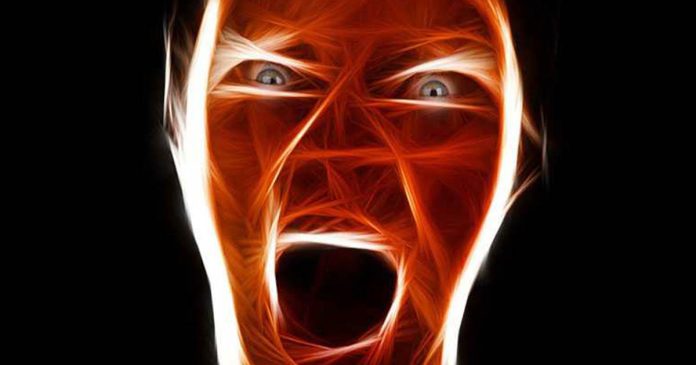When people talk of childhood abuse, they tend to think of physical—not emotional—harm. But that makes emotional abuse and neglect all the more sinister. It leaves no bruises and it can easily go unnoticed. Children in these situations don’t realize they are being abused since this treatment is all they know. Instead, they internalize ideas such as “I must earn love,” “If I’m not perfect, I’m a failure,” “I can’t let my guard down around people,” and “I am worthless.” As adults, they may recognize they were abused and didn’t deserve that treatment. However, unhealthy coping mechanisms don’t go away with logic, no matter how damaging the mechanisms may be in adult life.
The mental health community from the Mighty shared personal examples of how childhood emotional abuse has affected them later in life. Sadly, many people may relate to these confessions. Just remember that you’re not the only one struggling with these issues. And if others can overcome these painful tendencies, so can you.
Personality disorders

“[I have] attachment issues, trust issues [and am] paranoid that everyone will leave me. A lot of this is part of my BPD…”
The brain undergoes many periods of growth during childhood, and abuse can disrupt these spurts. Researchers examined brain scans of people with childhood trauma and those without. Those with past abuse or neglect had changes in the brain regions associated with impulses, stress responses, and emotional regulation. This can make these adults more susceptible to mental health issues and personality disorders, such as histrionic personality disorders.
Mental health issues

“I have major issues with anxiety and depression because of my childhood. The biggest factor is I cannot communicate well and I don’t know how to express my feelings with others because I am so used to just holding them inside because I wasn’t allowed to share how I felt. When tense situations arise, I get nauseous and uncomfortable, [and] my anxiety levels skyrocket…”
Research shows that people with childhood trauma are more susceptible to depression and other mental health issues. They are also more likely to turn to substance abuse.
Over-apologetic

“I become apologetic over everything. If someone doesn’t text back, I’ll believe they’re upset with me, and I’ll apologize. If I ask for something and annoy them, I’ll apologize. Everything becomes a situation where I feel like I’m to blame.”
As a child, frequent apologies may have been a helpful survival technique. But as an adult, it places all responsibility on you, even things entirely out of your control. So you may apologize for being late, even though it was the bus that ran late, to preemptively diffuse a conflict.
Unclear sense of self

“I don’t really know who I am or what I truly think. Virtually everything I say seems to me to be a lie I’ve just fabricated for that particular situation. I have real problems trying to identify what I’m feeling.”
While kids in healthy environments are able to explore their interests, abused kids often cannot, leading to low self-esteem and a lack of identity. Not having a sense of self can feel draining since it can be difficult to know what you enjoy and what you believe. This sort of indecision can frustrate others and put a strain on relationships.
Fear of conflict

“[I] can’t stand conflict, loud sudden noises, shouting and screaming or aggression in any form. [It] triggers my fight or flight, instantly.”
Growing up in a home rife with conflict can leave a child feeling chronically unsafe. This fear can continue into adulthood, making a person feel uneasy as if the other shoe is always on the verge of dropping. They may struggle to feel truly safe and a sign of conflict, such as a loud noise or shouting, can cause anxiety disproportionate to the situation.
Being hard on yourself

“Blaming myself for everything. I have to fight the urge to beat myself up constantly. I’ve also struggled with feeling like I’m not good enough, which makes things like school, dating, and applying to jobs really hard.”
It may feel impossible to enjoy certain tasks, especially if a child was taught to do it perfectly or not at all. Over-achieving and perfectionism may seem like helpful traits from afar, but up close, they can destroy a person. Despite any accomplishments, they can leave the person feeling empty and worthless. Unfortunately, self-esteem won’t come through being perfect. Adults with childhood abuse may struggle to learn to enjoy something for the sake of it, especially if they’re bad at it.
Trust issues

“I avoid asking for help from anyone because I don’t trust anyone. I believe if someone offers me a hand, there will always be something they [want to] ask in return. I have friends but I don’t have a best friend, I keep my distance from people. Automatically, my wall blocks anyone.”
When a caregiver isn’t emotionally or physically present, children tend to adopt a certain independence. This is often a necessity since if they don’t provide for themselves, no one else will. However, as an adult, this independence could turn into a lack of trust in others and an aversion to asking for help.
Emotional unavailability

“I’m very defensive which can come across as cold or nasty. I also portray quite a lot of negativity which seems to be my barrier so I don’t get hurt.”
People with trauma from childhood abuse tend to act fearful, preoccupied, and dismissive in their adult relationships. When children develop their social behaviors in an abusive environment, they tend to create ambivalent or avoidant attachment styles. This means they tend to fear abandonment and stay emotionally distant from people.
Repeating the cycle (or fearing to)

“…I’m afraid to [be a] parent because I don’t want to ‘mess up’ my kid.”
The cycle of abuse can be difficult to break. People may swear to never act like their abusers, but abuse is all they learned from a young age. Adults may repeat toxic behavior without realizing it since their unhealthy coping mechanisms may cause emotional distress to others. For example, they may use the silent treatment instead of talking out problems, acting without considering other people, avoiding showing affection, feeling unable to comfort others, etc.
Underdeveloped coping skills

“…Lashing out on social media for years. Controversial and angry statuses, just due to the anger inside of me. I have texts I sent my friend where I described just how much I felt this unsettling anger in my chest. Emotional abuse from peers at school to family [can] really [mess] you up…”
When parents soothe their children, they are also teaching them how to soothe themselves. So kids from healthy homes may grow up and treat their distress by talking out their problems, putting on music, eating comfort food, getting a hug, etc. However, children who never received that sort of emotional support may lack the skills to handle negative emotions as adults. Therefore, they may turn to unhealthy coping techniques such as binge eating or alcohol abuse.
Difficulty accepting love

“I have trouble accepting any kind of love because growing up, it was always given with strings attached or used as a tool for manipulation. I don’t trust that others have the capacity to love me unconditionally, so I hide away parts of myself, never allowing myself to experience the vulnerability that comes with being loved, chosen, and accepted by others.”
For some people, it’s easier to love than to be loved. Because other people deserve love, but they themselves do not. Since love may have been conditional in childhood, it may seem unreasonable to receive love “for free”. Alternatively, people with past trauma may feel like they’re “tricking” people into liking them. They may think, “If they knew the true me, they would hate me” because they were made to believe that their “true selves” are unlovable.
Difficulty accepting joy

“I always feel like I am doing everything wrong… It’s very hard to convince me I am good at something.”
Adulthood may be the first time some people have the freedom to truly explore themselves. It could be difficult to enjoy different activities, since they may come with feelings of guilt or trepidation. However, trying new things can help create a sense of self, and picking up hobbies can improve self-esteem.
Although it may feel impossible to ever heal, there are many types of therapies available to overcome childhood abuse. Asking for help is never shameful, no matter how much time has passed since the trauma.
Sources
-
- “25 Things You Do as an Adult When You’ve Experienced Childhood Emotional Abuse.” The Mighty. Juliette V. January 11, 2024
- “How Childhood Emotional Neglect Impacts Adult Relationships and How to Heal.” Psych Central. Hope Gillette. July 13, 2022
- “Signs of Childhood Trauma in Adults.” Very Well Mind. Brittany Loggins. December 2, 2023
- “How Emotional Abuse in Childhood Changes the Brain.” Very Well Mind. Leonard Holmes, PhD. March 10, 2024

